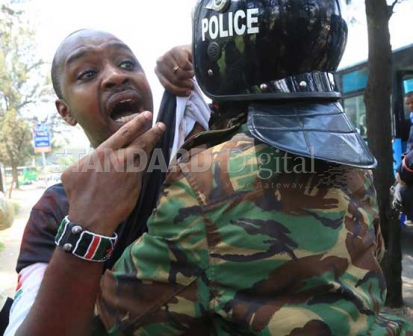×
The Standard e-Paper
Join Thousands Daily

Kenyans are still dealing with the aftermath violence meted on demonstrators as the country approaches the October 26 presidential election.
Gains made from the new Constitution, which included changing its name from the Kenya Police to National Police Service (NPS), are slowly being watered down courtesy of Parliament’s amendments of the laws that created the service.